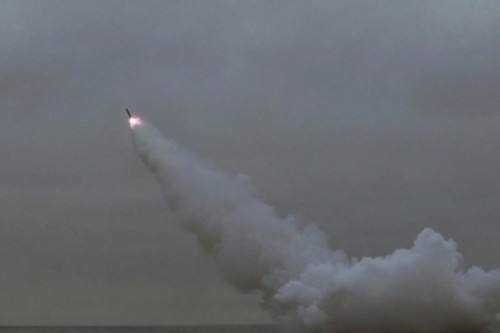N.Korea fires 2 short-range ballistic missiles

Seoul, March 14 (IANS) North Korea fired two short-range ballistic missiles (SRBMs) toward the East Sea on Tuesday, a day after South Korea and the US kicked off a regular military exercise, Seoul's military said.
The Joint Chiefs of Staff (JCS) said it detected the launch from the Jangyon area in South Hwanghae Province between 7.41 a.m. and 7.51 a.m., and they flew some 620 km, reports Yonhap News Agency.
The intelligence authorities of South Korea and the US are conducting a comprehensive analysis of the specifics of the missiles, according to the JCS.
"We strongly condemn the North's series of ballistic missile launches as an act of significant provocation that harms peace and stability not only on the Korean Peninsula, but also in the international community, and a clear violation of U.N. Security Council resolutions," it added.
It also urged the North to immediately stop such launches.
"While normally conducting the combined exercise under the firm combined defence posture, our military will track and monitor North Korean movements to see if there is a possibility of additional provocations," the JCS said.
The US Indo-Pacific Command said that the North's missile launches highlight the "destabilising" impact of the North's "unlawful" weapons of mass destruction and ballistic missile programs.
"The US commitments to the defence of the Republic of Korea and Japan remain ironclad," the command said in a press release, referring to South Korea by its official name.
The latest launch came after the North fired what it claimed to be two "strategic cruise missiles" from a submarine Sunday and conducted a "fire assault drill" three days earlier.
On Monday, Seoul and Washington began their 11-day Freedom Shield exercise, which is to proceed with the concurrent field training exercise, called the Warrior Shield.
Pyongyang has decried the exercises as a rehearsal for a war of aggression against it and threatened to take "overwhelming" action against military activities by the allies.
Its hardening rhetoric has stoked concerns that the reclusive regime could continue to ratchet up tensions with more powerful provocations, such as the launch of a solid-propellant intercontinental ballistic missile and a nuclear test.

|

|

